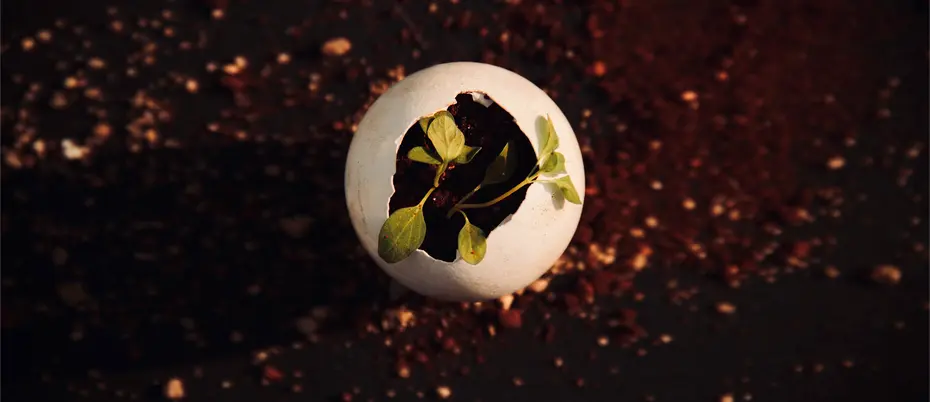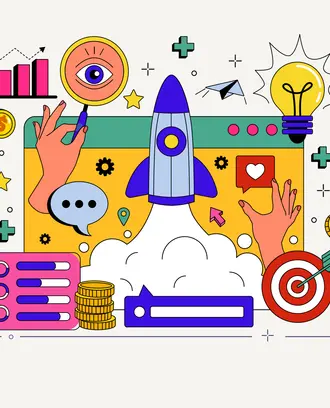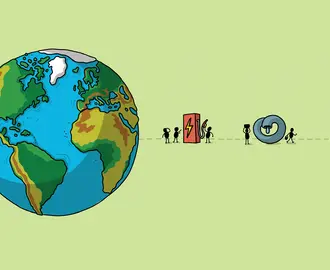Sustainability
3 leaders detail practices that support stakeholder and societal values
These alternative business models use practices like regenerative agriculture and quadruple bottom lines to support stakeholder and societal values.
The life cycle of every business is powered by choice — what to produce, how to produce it, and who to hire — and every choice provides an opportunity to balance societal and stakeholder values.
Some business structures emphasize profit over social value, MIT Sloan senior lecturer Barbara Dyer said during a panel on alternative business models at the 2023 MIT Sloan Retail Conference.
But then there are business structures that more equally balance those values and “provide the anchor, the framework, that enable businesses to make choices that could generate value on multiple dimensions, not just the profit dimension,” said Dyer, who moderated a panel of managers from Cotopaxi, King Arthur Baking Company, and REI.
Here’s how these three companies handle what Dyer called the tension between purpose and profit.
Cotopaxi: Fighting poverty through sustainably made outdoor gear
Founded in 2014 and named after one of Ecuador’s active volcanos, Cotopaxi is an outdoor clothing and gear company based in Salt Lake City. It’s a benefit corporation as well as a certified B Corporation, meaning Cotopaxi self-reports on things like its social and environmental impacts and is assessed by the nonprofit B Lab every three years to maintain its certification. The company also partners with the Fair Trade Certified program to ensure that its suppliers meet manufacturing and sourcing standards such as safe working conditions and livable wages.
Cotopaxi was founded “as a vehicle to fight extreme poverty through the manufacturing and selling of sustainably made outdoor equipment,” said Vice President of E-Commerce Stacey Howe.
The company’s Del Dia backpack offers one example of how it fulfills this purpose. The line of bags is made in the Philippines using fabric scraps collected from other companies. This reduces Cotopaxi’s environmental footprint and ensures that its workers are making bags in a safe space and being paid fairly for their labor.
King Arthur Baking Company: “Brain food” classes and regenerative agriculture
King Arthur Flour Company was founded in 1790 in Boston and today is one of the oldest privately held food and beverage companies in the United States. Similar to Cotopaxi, King Arthur — now King Arthur Baking Company — is a B Corp and benefit corporation, but it’s also employee owned.
While employees don’t vote on business decisions, the company does have an obligation to be transparent regarding where its money is going, said Molly Lawrence, King Arthur’s corporate social responsibility manager. To help employees understand how to read financial sheets, the company conducts “brain food” classes during new-employee orientations.
During these classes, full- and part-time employees learn about subjects like corporate finance, basic accounting, and how the company scores on its B Corp impact assessments.
Lawrence said the company also has a program in which it offers financial incentives to wheat farmers transitioning to regenerative agriculture, a practice centered around the sustainability of farms, workers, and how land is managed.
REI: Quadruple bottom lines and rigorous retail standards
Recreational Equipment Incorporated got its official start in 1938, when two dozen friends started a co-op so they could afford their passion for climbing.
“It was really founded by this belief of what we can do with our collective power,” said Monika Bach, REI’s Northeast regional manager for local marketing and social impact.
REI’s “collective power” ethos has been evident in recent votes to unionize at three of its stores. In early March, workers at a Cleveland-area store voted to join the Retail, Wholesale and Department Store Union — an effort the union says REI fought despite its stated commitments.
Today, REI customers can buy a $30 lifetime membership that comes with perks like earning 10% back on some purchases and the ability to vote on board candidates.
REI holds its vendors and retailers to high standards, Bach said, particularly when it comes to climate sustainability and the use of plastics and micropollutants in the retail clothing industry. One brand that’s made the cut and continues to be sold in its stores is Cotopaxi. Another is La Colombe Coffee Roasters, which has a shop inside REI’s flagship store in Washington, D.C. The coffee company uses environmentally friending packaging and responsibly sources beans, among other sustainable practices.
“We at REI pride ourselves on the quadruple bottom line: employees, members, profit, and society,” Bach said. “Anytime we talk about those four pieces, they’re side by side because each one directly impacts the other.”
Read next — ESG ratings: Don’t throw the baby out with the bath water




